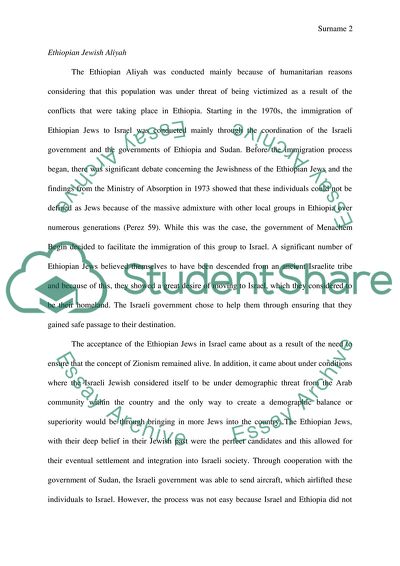Cite this document
(Immigration Policies of Israel Report Example | Topics and Well Written Essays - 3750 words, n.d.)
Immigration Policies of Israel Report Example | Topics and Well Written Essays - 3750 words. https://studentshare.org/politics/1875118-immigration-how-has-israels-identity-shaped-how-its-immigration-policies-over-the-last-30-years
Immigration Policies of Israel Report Example | Topics and Well Written Essays - 3750 words. https://studentshare.org/politics/1875118-immigration-how-has-israels-identity-shaped-how-its-immigration-policies-over-the-last-30-years
(Immigration Policies of Israel Report Example | Topics and Well Written Essays - 3750 Words)
Immigration Policies of Israel Report Example | Topics and Well Written Essays - 3750 Words. https://studentshare.org/politics/1875118-immigration-how-has-israels-identity-shaped-how-its-immigration-policies-over-the-last-30-years.
Immigration Policies of Israel Report Example | Topics and Well Written Essays - 3750 Words. https://studentshare.org/politics/1875118-immigration-how-has-israels-identity-shaped-how-its-immigration-policies-over-the-last-30-years.
“Immigration Policies of Israel Report Example | Topics and Well Written Essays - 3750 Words”. https://studentshare.org/politics/1875118-immigration-how-has-israels-identity-shaped-how-its-immigration-policies-over-the-last-30-years.


